United States GP: Hamilton must win in 'weird' Austin to keep pressure on Rosberg
- Published
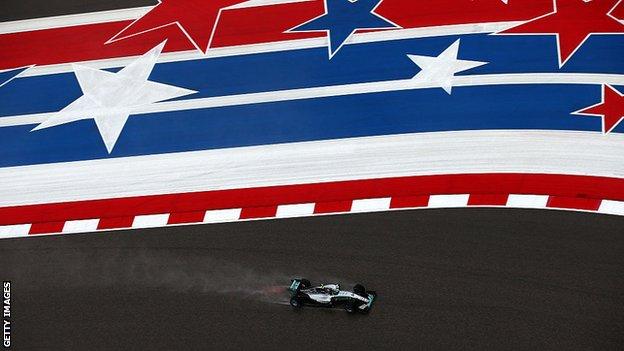
The United States Grand Prix is live on the BBC Sport website and Radio 5 live
This year's United States Grand Prix comes at a critical time for both Formula 1 and the host country.
The USA is gripped by the most controversial presidential contest in decades - with the election just a little over two weeks after this weekend's race in Austin, Texas.
And F1 arrives in one of its favourite locations with the world champion and its biggest star, Lewis Hamilton, at war with the media for reasons it is fair to say much of the media don't really understand.
Hamilton, trailing team-mate Nico Rosberg by 33 points in the championship with four races to go, is scheduled to be taking part in the official pre-event news conference in Austin on Thursday. So there will be an early chance to find out where his head is at when it comes to the latest controversy surrounding the Mercedes driver.
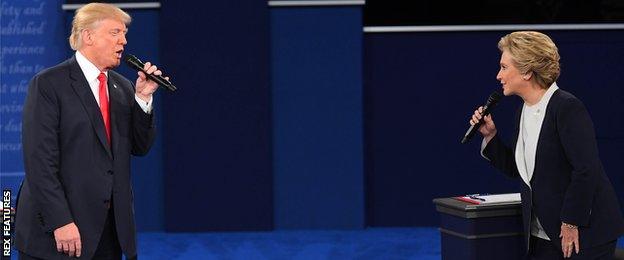
The US is in the last few weeks of the most controversial presidential race in recent history
It is this same event that led to all the trouble in Japan two weeks ago, when Hamilton spent the half-hour not really answering questions, directing people interested in his views to his social media outlets, and using one of them to post pictures of himself and fellow driver Carlos Sainz with bunny rabbit and deer faces.
Then, upset by some of the subsequent coverage, Hamilton refused to take any questions at his post-qualifying conference two days later.
If nothing else, the furore - if that is an appropriate word for what many may view in reality as one of the more ridiculous media controversies to surround F1 - will guarantee media coverage in the States. And that is exactly what the sport, and this race in general, needs.
With Austin, F1 in America has finally - after 30 years of trying - found what feels like it could be a permanent home - a place where there is a decent track, an enjoyable location, and people who want to come and watch.
So to hear last autumn that the race might not happen this year because of a $6m shortfall in state funding seemed at first like it could be yet another example of F1 shooting itself in the foot in a market it has struggled to master despite 60-odd years of trying.
After all, what's $6m in the context of a race as important to F1 as this?
The problem has been solved by the track hosting a concert by pop superstar Taylor Swift on Saturday night, the idea being to attract fans who might want to see her play and then, hey, why not take in a race - as well as those who might view things the other way round.
It's worked, and long may that remain the case, for not since the late 1970s and early 1980s, when the US Grand Prix had homes in Watkins Glen in New York State, and Long Beach, California, had it felt like there was a race with which the sport could prosper in the States.
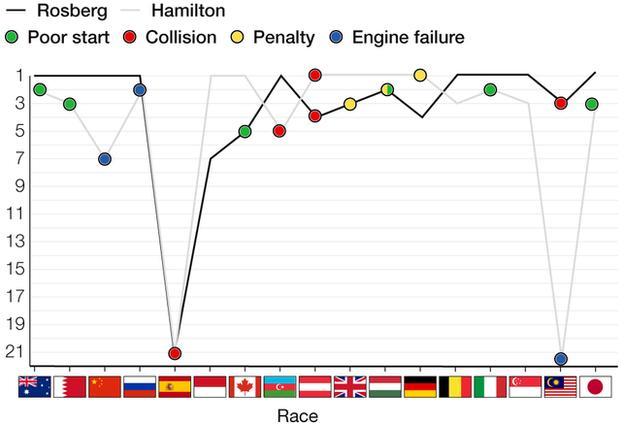
After an eventful season, Lewis Hamilton trails Nico Rosberg by 33 points in the title race
When these fell by the wayside for - you guessed it - financial reasons, a succession of street tracks in Las Vegas (actually a car park), Detroit, Dallas and Phoenix all failed to capture the imagination. Even the race on a road course fashioned out of the centre of the Indianapolis Motor Speedway, evocative and historic though the location was, felt like F1 was squatting in someone else's house.
Not now, though. On the face of it, Austin and F1 might seem strange bedfellows - a small city in the middle of a conservative, heavily Republican state, about as far away from the traditional strongholds of F1 support on the east and west coasts as it is possible to get.
But not for nothing is the city's catchphrase "Keep Austin Weird". It might be the state capital, but it is about as far from the cliched view of Texas as it is possible to get.
Austin is a buzzing, cosmopolitan place, where there is live music - usually rock, rather than country - playing at many bars, and where it is as easy to get sushi as it is steak among the plethora of multinational restaurants.
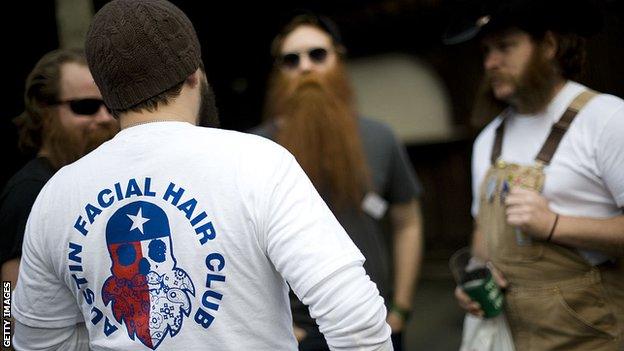
Didn't know Austin has its own facial hair club? Of course it does...
It's only "weird" in the context of how different it is from the rest of Texas.
Yet the Texas of movies is never far away - in the scrubland and trailer parks, western stores and parched-yellow grass one passes on the way to the Circuit of the Americas.
The track itself is the best F1 venue since Watkins Glen. Many corners are nods to other race tracks around the world, and yet it all hangs together in a cohesive whole that both challenges the drivers and provides a decent spectacle, too.
America has room for more grands prix - and F1 wants them. But this one will do just fine for now.
Andrew Benson, chief F1 writer
Title winners
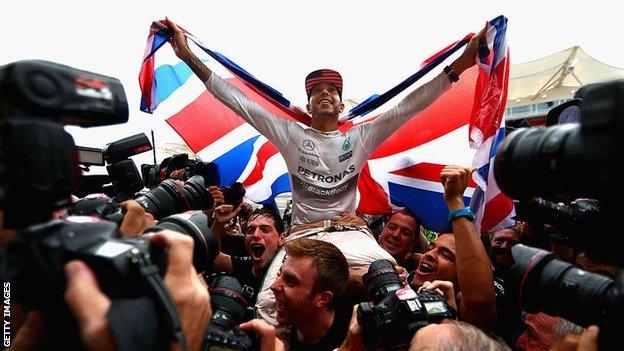
The drivers' championship has been decided seven times on US soil - Lewis Hamilton won the title in Austin last year
A family affair
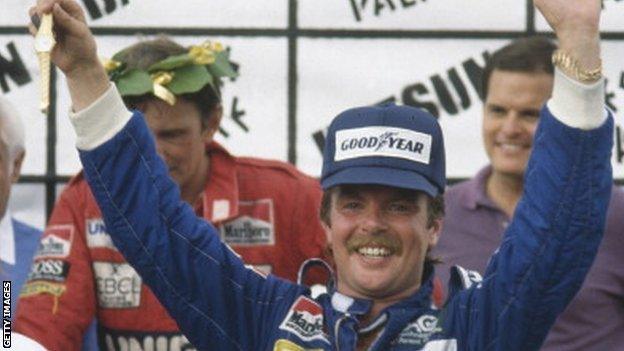
Keke Rosberg cemented his drivers' title in the United States, but did so at the Las Vegas Grand Prix, not the USGP. Keke's son Nico is in the driving seat to win this year's title, but cannot secure it this weekend.
A club of one
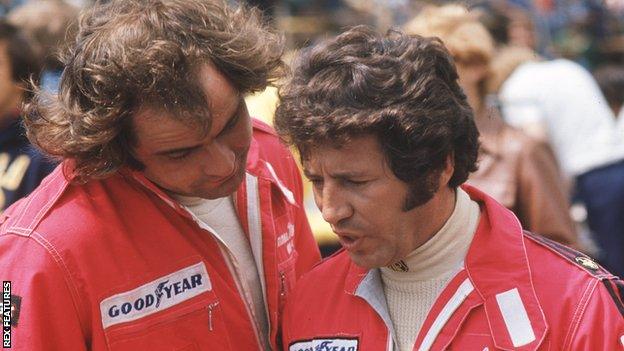
Mario Andretti is the only American to win on home soil in Formula 1, winning the United States Grand Prix at Long Beach in 1977
Multiple winners
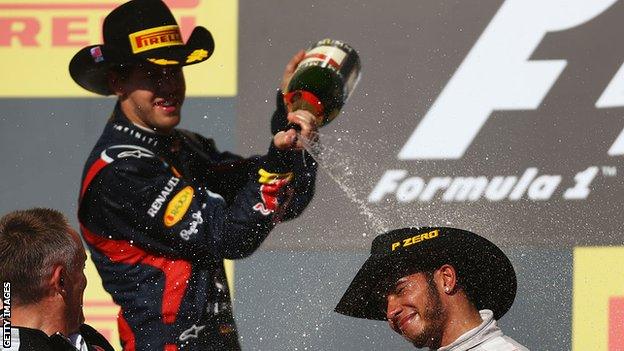
Lewis Hamilton and Sebastian Vettel are the only current drivers to have won the US GP - Hamilton has won it four times while Vettel has won it once
Watch out for the wildlife...
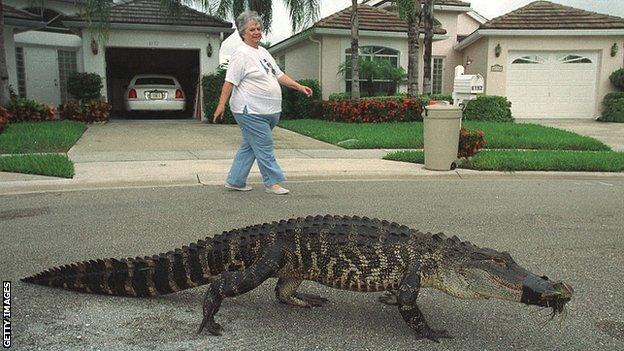
An alligator weighing nearly 900 pounds, which was captured last Wednesday, is believed to be the largest ever caught in Texas - the one pictured is not as massive, but most things in America are
Surf's up
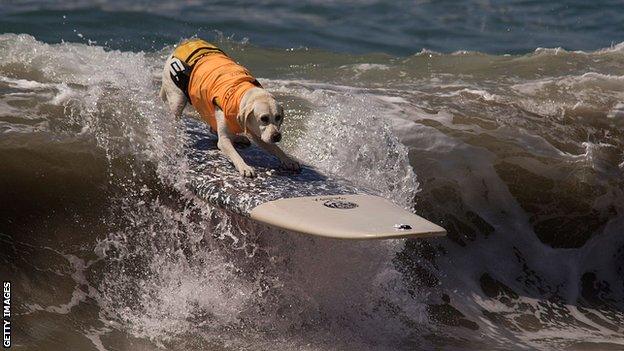
America's first surf park opened in Austin earlier this month - dog optional
Hammer running out of time?
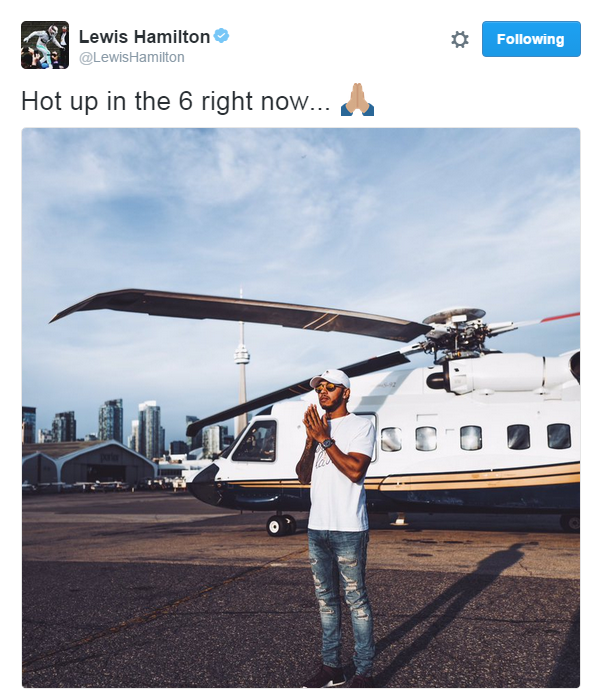
Lewis Hamilton spent time in Toronto before travelling to Austin
Subscribe to the BBC Sport newsletter, external to get our pick of news, features and video sent to your inbox.
- Published15 October 2016
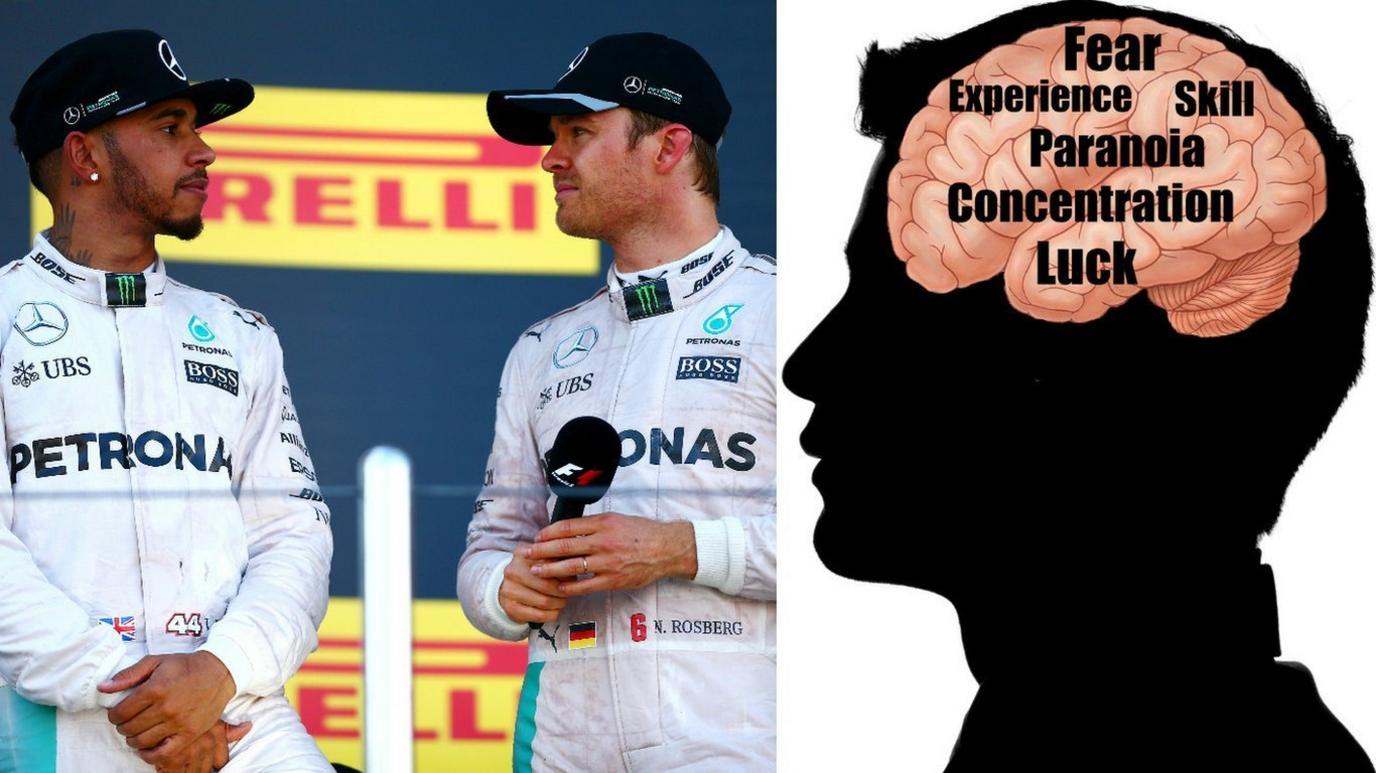
- Published18 December 2015

- Published8 August 2017

- Published13 May 2016

- Published26 February 2019
